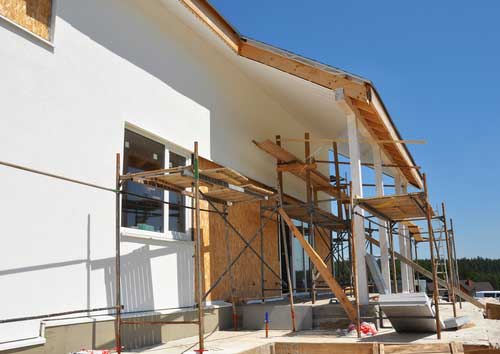
The Ontario Court of Appeal has rattled the title insurance industry with it’s ruling last Friday that the standard form insurance contract covers a homeowner who later learned that a support wall had been illegally removed by the previous owner, contrary to the building code and municipal approval.
 Litigator Gavin Tighe, who represented the homeowners in their appeal of a lower court ruling, says the case is important because it discusses the extent of title coverage under such policies.
Litigator Gavin Tighe, who represented the homeowners in their appeal of a lower court ruling, says the case is important because it discusses the extent of title coverage under such policies.
“Title insurance is probably, at this point in time, one of the most widely distributed insurance policies in the country,” he said, noting that almost every home purchaser now obtains both title and fire insurance coverage.
However, he said, the scope of what title insurance actually covers remains a bit of a mystery, since there is a lack of case law on the topic in Canada.
“I think there’s been a major gap in the law on title insurance, given the incredibly widespread use.”
This case, he says, casts light over that shadow.
Real estate lawyer Bob Aaron added that the case is a “big win for homeowners.” He said it means if “there was illegal work done in the house that didn’t comply with the building code, the title insurance policy would cover a post-closing work order from the city.”
In MacDonald v. Chicago Title Insurance Co. of Canada the MacDonald homeowners bought a Toronto, multi-story home in 2006. In 2013, they learned a load-bearing wall had been removed during renovation work undertaken by the previous owner without a building permit. That made the second floor unsafe.
The city issued a remediation order, requiring the couple to temporarily support the floor and they claimed under their title policy.
The couple brought a summary judgment motion, but the lower court judge ruled their title policy did not cover the situation and held their title was unaffected by the illegal construction because the house still remained marketable, albeit not worth what is was before the defect was discovered.
He noted the city work order was not registered on title, and he granted summary judgment in favour of Chicago Title.
On appeal, however, Justice C. William Hourigan disagreed with the motion judge’s interpretation of the contract. Hourigan said the motions judge acted on his “own volition” when he held that for a municipal work order to affect an owner’s interest in their property it must be registered on title.
Municipal work orders, he wrote, “are a defect that can only be discovered by what are commonly known as ‘off-title searches.’”
LAWPRO, which intervened in the case, provided evidence involving a 2005 agreement between it and the major title insurers, where the real estate transaction levy would be waived in exchange for title insurers releasing Ontario lawyers for any claims arising under a policy and indemnifying lawyers against any settlements or judgments involving title insured transactions.
LAWPRO’s affidavit stated it understood the definition of title meant more than claims and impediments registered against title, but included defects that could only be discovered through off-title searches.
LAWPRO argued if the lower court ruling wasn’t overturned, then its agreement with title insurers would not cover claims that arose off-title and LAWPRO would bear the responsibility even though it waived the transaction levy.
Hourigan agreed, noting that “the restrictive scope of title insurance contemplated by the motion judge would cause chaos in the real estate bar as, no doubt, purchasers of title insurance throughout the province has instructed their solicitors not to conduct the off-title searches on the understanding that such defects were covered by their title insurance.”
The result, he said, was an “unduly restrictive interpretation of the coverage, and that amounted to an error of law.
Hourigan cited the section of the policy dealing with unmarketable title and disagreed with the motion judge’s finding that the homeowner’s title was not affected, because they could still sell their house.
“The fact that someone might be willing to purchase a dangerously defective building does not mean that it is marketable under the title policy.”
He noted that the marketability provision needed to be construed broadly under insurance contract interpretation principles.
Hourigan said the danger flowed directly from the previous owner’s failure to obtain the necessary municipal approval for the changes, and that failure made the property unmarketable within the definition of the title policy.
He awarded the couple their costs for the appeal and the earlier motion application.
When reached, Robert Dowhan, counsel for Chicago Title had yet to discuss the case with his client and declined to comment.
For his part Tighe said he argued that “title is the legal snapshop of what you house is,” and he believes the case could have far-reaching impact.
“There’s a lot of properties that have been renovated or built that have all sorts of issues. It’s very, very common. The question becomes whether the construction or building issue is a title issue.”
Aaron added that he didn’t think the Supreme Court of Canada would give leave to an appeal. In fact, he said, the MacDonald ruling “changes a lot of litigation in progress. There might be a lot of settlements coming up pretty quickly.”